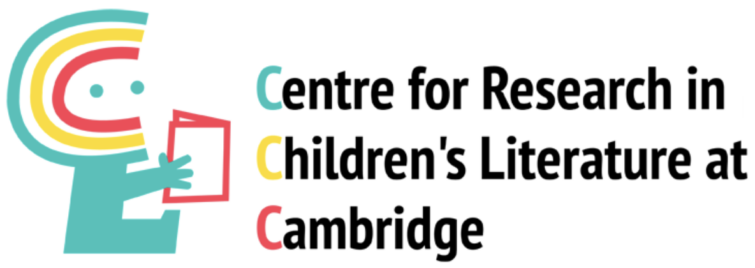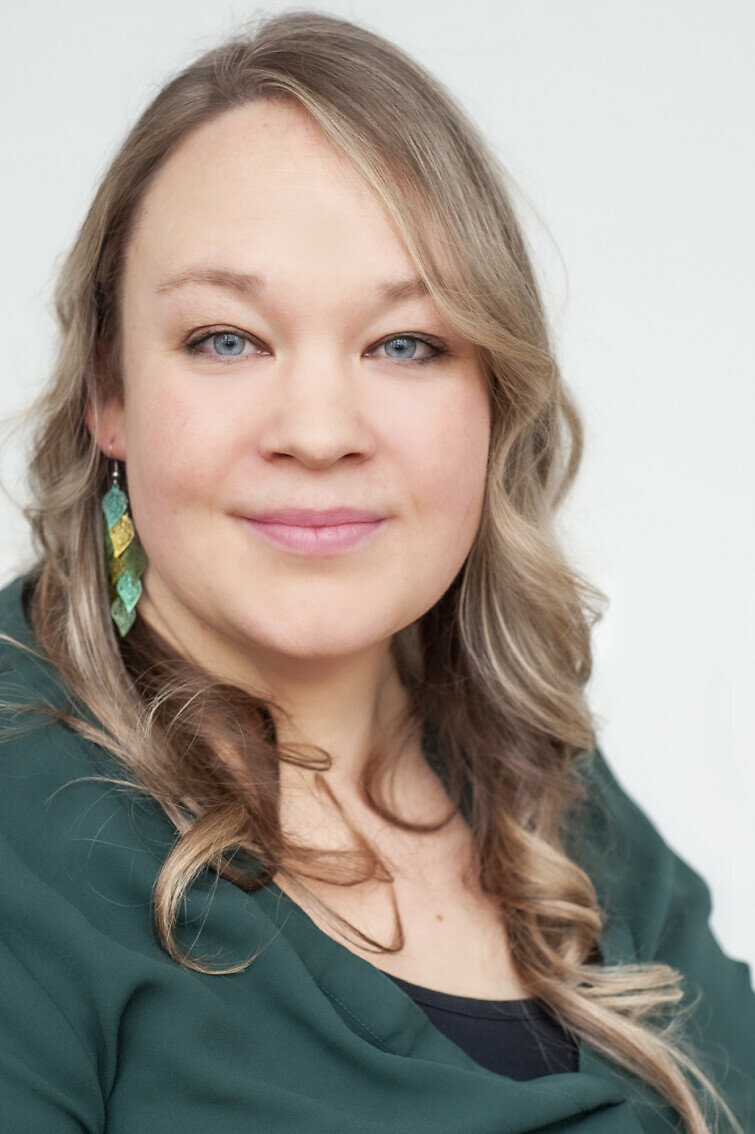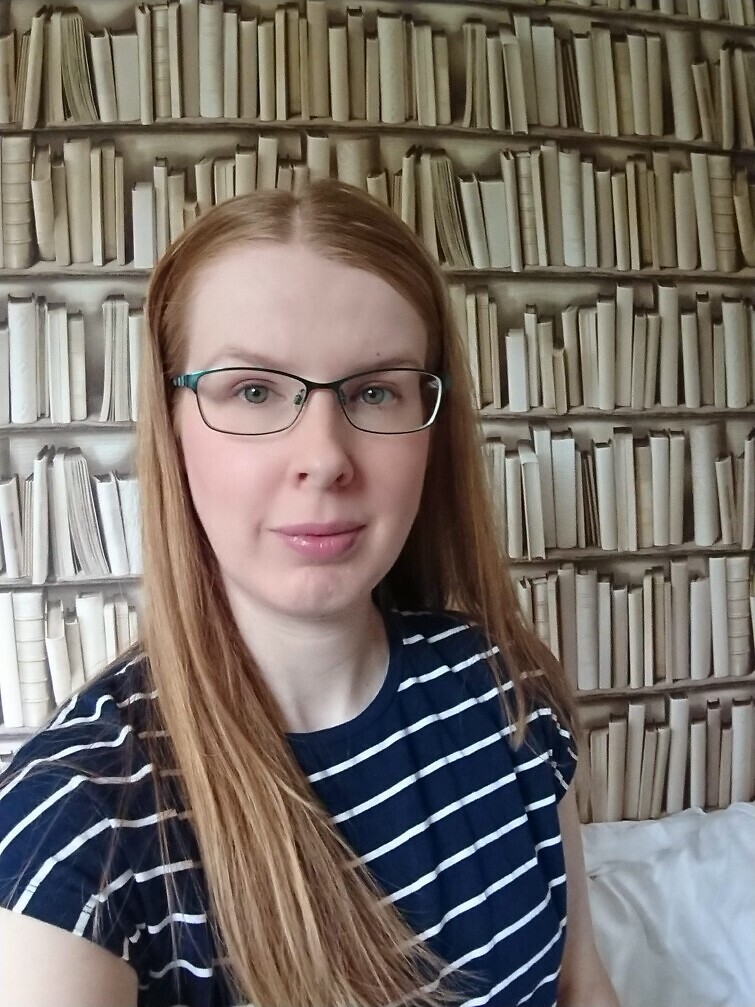| 19 Apr 2024 - 20 Apr 2024 | All day | Online & Donald McIntyre Building, Faculty of Education, 184 Hills Road, Cambridge CB2 8PQ | |
- Description
- Programme
- Speaker biographies
- Posters
- Event accessibility
Description
Keynote speakers
- Maren Conrad (University of Cologne, Germany)
- Ria Cheyne (Liverpool Hope University, United Kingdom)
Summary
The idea for this conference evolved from several PhD students at the Centre for Research in Children’s Literature at Cambridge working on or adjacent to disability studies who found that there had not been sufficient space yet to discuss their ideas, thoughts, and analyses. We therefore envisioned to provide fresh space for conversations about the representation of disability in texts for young people from an interdisciplinary and international perspective and to ask: what can disability studies do for children’s and young adult literature? And what can children’s and young adult literature do for disability studies? The symposium shall not only provide space for scholars already working on the discourse to connect, especially across various cultural, geographical, and disciplinary borders, as well as ideally get in touch with and exchange ideas with individuals from various backgrounds and professions, but also to encourage attendees not yet overly familiar with the discourse to be introduced to the field, consider disability studies as a framework for analyses, and potentially deconstruct ableist thinking and behaviour.
If you have specific accessibility needs for this event please get in touch. We will do our best to accommodate any requests.
Supported by:


Programme
Day 1: Friday 19 April
|
|
| 8:30 - 9:00 | Registration |
| 9:00 - 9:30 | Room GS4 | Zoom Room 1 Opening Comments |
| 9:30 - 11:00 | Panel 1 Stream 1: Creativity and Interactivity Moderator: Julia Jin Wang (University of Cambridge) ‘I feel different and curious cats: autistic representation, gender and double empathy dilemmas’ ‘Exploring dementia in children’s literature: an interactive exhibition’ How kids create their perception of disability when playing narrative video games ‘Not a tragedy to overcome, but a way of being in the world’: subverting ableist constructions of disabled identities through own voice, ya stories and literary activism’ Stream 2: Bodies and Embodiment Moderator: Emma Tueller Stone (University of Cambridge) ‘Challenging the ‘disabled people as parasites’ trope: conjoinment and consumption in Sarah Crossan’s One ‘Unmasking grotesque critique: exploring children’s experiences and disabilities in Zainab’s Sulaiman’s ‘Simply Nanju’ ‘Fairytales & cure in Kenneth Oppel’s The Nest’ ‘From ‘fault’ to ‘flawless’: transforming teens with disabilities |
| 11:00 - 11:30 | Break
|
| 11:30 - 12:30 | Keynote Keynote: Maren Conrad (University of Cologne) Moderator: Carla Plieth (Technical University of Darmstadt) |
| 12:30 - 13:30 | Lunch
|
| 13:30 - 15:00 | Panels 2 Stream 1: Picturebooks Moderator: Lily Fitzmaurice (University of Cambridge) ‘Exploring ableism in picturebooks with critical disability theory’ ‘Mirrors and windows: empathy and theory of mind in disability representation within children’s picturebooks’ ‘Worrying about worrying: how is anxiety represented in contemporary American picturebooks?’ ‘Conceptualising childhood and disability through tactile picture books’ Stream 2: Neurodiversity 1 Moderator: Rachel Milne (University of Cambridge) ‘Change in representation of autism in Arabic children’s literature’ ‘Struwwelpeter and ADHD: reading children’s ‘attention’ and ‘behaviour’ historically’ ‘Becoming’ neurodivergent: Rick Riordan’s ethics of opening up to the neurodivergent ‘other” ‘Orientations of reading mental health dis/ability in young adult novels: reading Neal Shusterman’s Challenger Deep’ Stream 3: Themes of YA Moderator: Carla Plieth (Technical University of Darmstadt) Cripped Narratology’: a theory of disabled storytelling in young adult literature’ ‘Intersectionality of disability and queerness in selected young adult fiction ‘Dragons, dreams, and accessible bathroom design: Crip worldbuilding in young adult speculative fiction’ ‘Pain demands to be felt: embodied needs of disabled characters in YA Fiction’ |
| 15:00 - 15:30 | Break |
| 15:30 - 17:00 | Panels 3 Stream 1: Multimodality Moderator: Valentina Rivera Bravo (University of Cambridge) ‘”You’re a maverick”: Cripping witnessing of sexual trauma in Sex Education’ ‘From Crip to Krip: Leroy Moore, hip-hop, and the pedagogical potential of storytelling’ ‘Stereotypes and misconceptions about dyslexia in children’s fiction picture books’ Stream 2: Classics and Disability Moderator: Rachel Milne (University of Cambridge) ‘Taming time and a tomboy: temporal didacticism in Susan Coolidge’s What Katy Did’ ‘ ‘The depiction of disabilities and the default body in Frances Hodgson Burnett’s The Secret Garden and Jean Little’s Mine for Keeps’ ‘Crippled companions: sharing the disabled experience in Louisa May Alcott’s Jack and Jill’ ‘A bubble of freedom: progressive disability representations in L. Frank Baum’s Books for New Girls’ |
Day 2: Saturday 20th April |
|
| 9:00 - 9:15 | Registration |
| 9:15 - 9:30 | Opening Comments |
| 9:30 - 11:00 | Panels 4 Stream 1: Senses & Aesthetics Moderator: Carla Plieth (Technical University of Darmstadt) ‘Aesthetic strategies of making disability (In)visible in contemporary coming of age-series’ ‘Deaf people and language representation in children’s picture books’ ‘Representations of epilepsy in contemporary fiction books for children and middle grade readers: taking a mirrors, windows, sliding glass doors, and developmental bibliotherapy approach’ ‘Notes on the narratoaethetics of hearing loss and deafness in contemporary children’s media’ Stream 2: Genre Fiction Moderator: Elizabeth Leach-Leung (University of Cambridge) ‘Liberating (?) the ‘cripples’ from ‘Essential Victimhood’: examining the portrayals of disabled people as culprits in Satyajit Ray’s Detective Stories‘ ‘Challenging little grey cells: learning disabilities in children’s detective fiction’ ‘Horror in picture books to counter narratives of shame and anxiety about disabilities’ ‘Crip future histories in dystopian young adult fiction’ |
| 11:00 - 11:30 | Break |
| 11:30 - 12:30 | Keynote Keynote: Ria Cheyne (Liverpool Hope University) Moderator: Elizabeth Leach-Leung (University of Cambridge) |
| 12:30 - 13:30 | Lunch Optional poster session Q&A |
| 13:30 - 15:00 | Panels 5 Stream 1: Film and TV Moderator: Rachel Milne (University of Cambridge) ‘Outmodes and lemons: discrimination in children’s animated media’ ‘Main character energy: why all your favourite protagonists are neurodivergent’ ‘Walls and wheelchairs: intersections of politics and disability in Palestinian children’s literature’ Stream 2: Politics of Disablement Moderator: Carla Plieth (Technical University of Darmstadt) ‘The coming of AIDS story: HIV-AIDS in three contemporary young adult novels’ ‘“Skipping Stones on Headstones”: unravelling the connections between death and disability in young adult disability romance fiction (YADRF).’ ‘Adolescent mental distress & anti-capitalist support in young adult fiction’ |
| 15:00 - 15:30 | Break |
| 15:30 - 17:00 | Panels 6 Stream 1: Neurodiversity 2 Moderator: Valentina Rivera Bravo (University of Cambridge) ‘Navigating the spectrum: German young adult literature as medium of depiction and education on depressive disorders’ ‘Maddening the children’s section: patchworking a mad-positive book list’ ‘Between lines and illustrations: unraveling autism portrayals in Greek literature for children’ ‘Prophecies of disablement: an exploration of implicit disability in Rick Riordan’s Percy Jackson and the Olympians‘ Stream 2: Speculative Fiction Moderator: Emma Tueller Stone (University of Cambridge) ‘“They want you to be the version of yourself they like.” disability and abjection in Marie Lu’s The Young Elites’ ‘The siren’s call: latinx mermaids and disability in youth literature’ ‘Envisioning children’s disabilities within fictionalizing ‘nuke’ experienced communities: Chernobyl children, slow hope and superhero narrative therapy’ |
Speaker biographies

Maren Conrad (University of Cologne, Germany)
‘Literary disability studies and the trilemma of inclusion: a theoretical approach towards the analysis of children’s and young adult literature and media’
Maren Conrad is full Professor (W3) in Children’s Literature at the University of Cologne and Head of the Centre for Children’s and Young Adult Media Research (ALEKI) since October 2022. Before that she was a full-time professor for German Literature and Children’s Literature at the University of Erlangen-Nuremberg (2017-2022), following positions as a post-doctoral researcher at the University of Münster (2012-2017) and DAAD-lecturer at University College Cork, Ireland (2010/11). Her main fields of research are disability studies, questions concerning inclusion, literary utopia, narratology, media and cultural semiotics in children’s and young adult literature, fantasy, fairytales, ballads, genre-theory, and game studies.

Ria Cheyne (Liverpool Hope University, United Kingdom)
‘Disability studies and children’s literature: spaces of possibility’
Ria Cheyne (she/her) started her academic career as a literature scholar focusing on science fiction and fantasy. Post PhD she developed specialisms in other popular genres and in disability in literature. This led to a postdoc in Disability Studies, and she has worked in both areas ever since. Her monograph Disability, Literature, Genre: Representation and Affect in Contemporary Fiction was published by Liverpool University Press in 2019, and is available open access. Currently she is a Senior Lecturer in Disability Studies at Liverpool Hope University. She identifies as a literature scholar, a disability studies scholar, and/or a medical humanities scholar depending on the time of day.
Posters
Posters
In alphabetical order:
‘“I’m Jorge. I Make the Spackle”: dissociative identity disorder, OCD, and anxiety in Encanto’
Michelle Ann Abate I Online (The Ohio State University)
‘Queer aesthetics, psychiatry and the uncanny (In)sanity: a serious study of the joker in The Killing Joke
Ramprasad Dutta I Online (Central University of South Bihar)
‘Images of intersectionality: analysing the impact of culture on mental health in Rosena Fung’s Living with Viola
Natalie Hsieh I In person (University of Glasgow)
‘Inclusive literature in the service of inclusive education’
Katarina Kolakovic I Online (University of Osijek)
‘A critical examination of the representation of disability in german children’s literature: insights and recommendations for publishers’
Liesen-Sophie Lange I In person (JohannesGutenberg University Mainz)
‘Male mental health: navigating outdated gender expectations & promoting positive intergenerational relationship – a picturebook analysis’
Stephanie Louise Anderson I In person (University of Glasgow, Aarhus University, Tilburg University)
The power to overcome?: a case study on the representation of heroic communities of care in patience Agbabi’s leap cycle series
Kayra Maes I Online (Vrije Universiteit Brussel)
‘More than mood swings: addressing the lack of PMDD representation in young adult literature’
Rowan Meredith I Online (University of Toronto)
‘Sensory alchemy: non-visual realms in self-insert disability fanfiction’
Theda Charlotte Ostermann I In person (University of Glasgow, Aarhus University, Tilburg University)
‘Childhood and disability: the question of caste, class and gender in select malayalam films’
Glincy Piyus I Online (Indian Institute of Science Education and Research)
‘Teenage angst, childhood friendship and ableism in Indian children’s literature”
Arpita Sarker I Online (University of Iowa)
‘Embracing diversity: exploring the representation of disability in young adult characters within Indian Narratives’
Neha Singh I Online (SRM University, AP)
‘Eco-Crip theory and representations of disabled children in nature’
Caitlin Tobin I Online (University of Wisconsin, Madison)
‘Hidden disability in young adult detective fiction’
Isabel Walters I In person (University of the West of England)
‘To the kingdom of the sick and back again: illness, journey, and cure in The Heir of Mistmantle and Salamandastron
Allyson Wierenga I Online (Texas A&M University)
Event accessibility
Please email the Events Manager if you would like us to be aware of any accessibility needs you may require.
In addition to presenter supplying accessibility copies, we have made the following considerations:
In person attendees:
- The conference will take place in rooms on the ground floor with step free access which are all equipped with microphones for presenters.
- Accessible washrooms are available on the ground floor.
- All rooms have several windows which will be open for better ventilation.
- A quiet room will be available.
- Live transcription will be available for both keynote presentations.
Online attendees:
- We will be using Zoom for all panels and keynotes.
- Our rooms are equipped with microphones for presenters.
- Zoom’s automatically generated subtitles will be enabled.
- Live transcription will be available for both keynote presentations.



